
Twistlock strengthens container security for enterprises on Google Cloud
More and more businesses are adopting a container strategy but this leads to problems for operations and security staff seeking to maintain control and visibility.
Container security specialist Twistlock released its Container Security Suite in beta back in May and has now announced general availability of the product along with its participation in the Google Cloud Platform partner program.

Offline navigation comes to Google Maps
One of the biggest problems with Google Maps on your smartphone is that you need an internet or data connection. At least that used to be the case. Today Google announces that navigation is now possible in offline mode.
In a move that has the potential to kill off the likes of TomTom and Garmin, Google is making it possible to download maps to your phone so turn-by-turn directions can be initiated even when there is no connection. It's a feature that people have been waiting for for some time, but Google has more to offer.
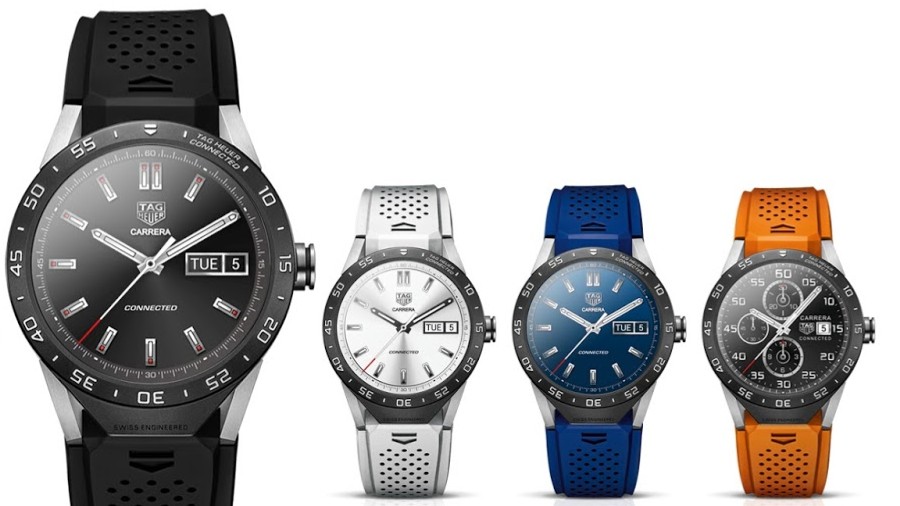
TAG Heuer shines luxury luminescence onto ALL Android Wear smartwatches
My colleague Wayne Williams wonders: "I don’t get the appeal of 'smart' versions of luxury Swiss watches". He refers to today's launch of the $1,500 TAG Heuer Connected Android Wear smartwatch. Over on Google+, journalist Kevin Tofel asks: "Who else doesn't think many people will buy a $1,500 Android Wear watch simply because it's made by TAG Heuer?" Both doubters make good, and related, points.
However, I see TAG Heuer Connected differently. Whether or not anyone buys digital over analog—or nothing at all—is immaterial. The high-end brand is carried in fine jewelry stores everywhere. This watch will make Android Wear visible to millions of buyers who might never see the platform. Demographically, many of these same people might never encounter or consider purchasing Apple Watch, either,

Major tech companies don't care much about your privacy
Sixteen of the biggest tech companies out there, eight internet firms and eight telecoms, were analyzed in terms of how much they allow their users to express themselves, and how much they protect their users’ privacy.
None passed the analysis with flying colors.
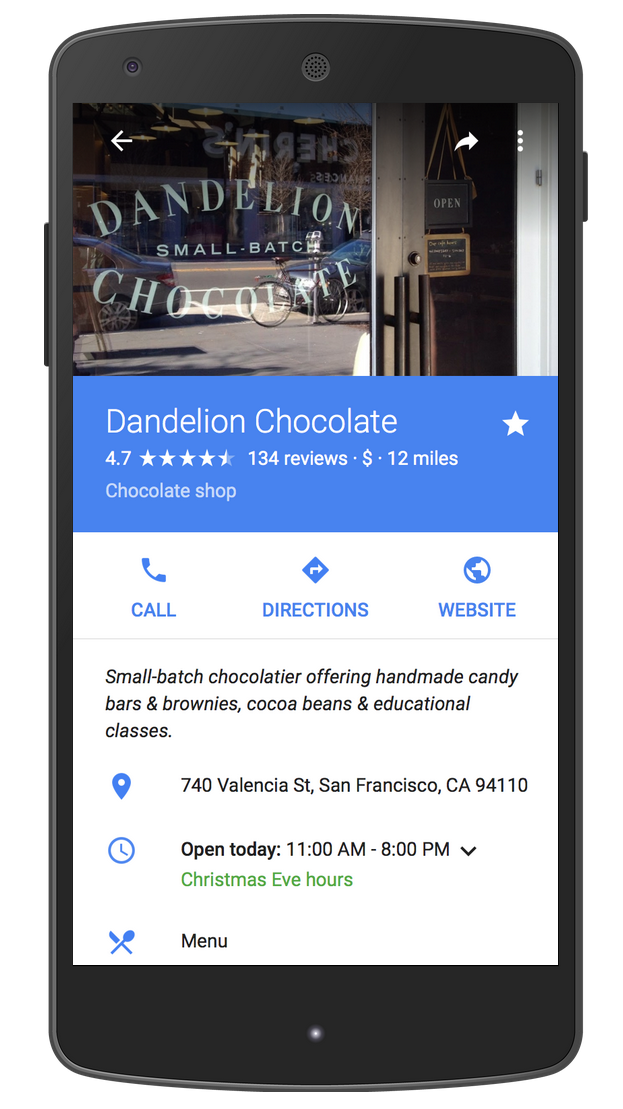
Christmas is coming -- Google Maps and Search get holiday hours
I hate leaving the house. Don't get me wrong, I love nature and fresh air, but my fellow humans can be sort of annoying. A trip to Walmart, or a mall, can be the most soul-crushing experience -- fewer people have manners nowadays. In other words, many shoppers do not know how to properly behave in public. This is why I try and do all my shopping online.
If you are a glutton for punishment, maybe you enjoy shopping in brick and mortar stores. With Christmas -- and other holidays -- approaching, many stores will have special hours, both shortened and extended. Now Google is making it easier to see these special holiday hours.

Virtual reality comes to YouTube -- let PewDiePie 'brofist' your face with Cardboard
My favorite video service is probably not what you expect. No, it is not Netflix or Hulu, but the free YouTube. Yes, when I am on my PC or tablet, I prefer watching Barnacules, iJustine and PewDiePie rather than Hollywood movies and prime-time TV shows. Say what you like, but I am certainly not alone in this regard.
Today, Google is improving YouTube in a really cool way -- it is delivering virtual reality. Using the search-giant's Cardboard face mask, you can experience VR-optimized content as if you are really there! Existing non-VR content can be viewed using Cardboard too.

Linux Foundation teams with big industry players to launch Open API Initiative
As we've seen with IBM's announcement earlier today, APIs are flavor of the development month at the moment.
Now the The Linux Foundation, a non-profit organization dedicated to accelerating the growth of Linux and collaborative development, is announcing the launch of an Open API Initiative to promote and facilitate the adoption and use of an open API standard.

Trek the wilds of New Zealand with Google Maps
You've likely seen some of the beauty of New Zealand. It's been on display in such movies as The Lord of the Rings trilogy, as well as the Narnia movies. It truly lends itself to the Middle Earth feel with the breathtaking landscapes. But the movies only show you parts of this paradise.
Google is taking on yet another wild destination, hauling its Trekker technology down to Australia's neighbor for what it terms a walk on the wild side.
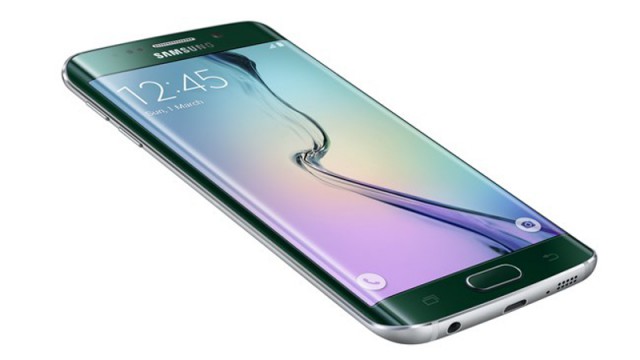
Google says Samsung Galaxy S6 Edge reduces Android security
Samsung's Galaxy S6 Edge is blighted by 11 security problems according to the Project Zero team at Google. The team carried out research to determine how easy it would be for an attacker to exploit an Android phone produced by an OEM.
Over the course of just a week of investigations, Google discovered "a substantial number of high-severity issues". While Samsung has now fixed some of the problems, at least three are still to be addressed.

Google's Nexus 6P bends too easily, and there's no excuse for that
Bend tests have become a talking point after Apple's iPhone 6 Plus was found to have issues in this department. So, whenever a new flagship smartphone comes out, you can expect someone to make a YouTube video showing how easily -- or not -- it can be bent. They have become so popular that reviewers can expect millions of views.
And because such tests are a given, manufacturers are also expected to learn from others' mistakes and come up with smartphone designs that fare well in these kind of conditions. So, you can imagine my surprise when I saw Google's new Nexus 6P bending -- and, as a result, breaking -- with very little effort. Has its manufacturer, Huawei, learnt nothing from Apple's mistake?

Smart Reply for Google Inbox suggests replies to emails
Gmail might be Google's most well-known email service, but more recently the company has introduced Inbox. Now Inbox gains a new feature -- Smart Reply. The email tool is known for its automation features and Smart Reply aims to cut down the amount of time you have to spend replying to messages in Android and iOS.
Although not entirely automated. Smart Reply analyzes the content of the emails you receive and suggests a number of stock replies that you might like to send. While it is certainly not going to eliminate the need to type out emails entirely, the ability to respond to common types of email with a couple of clicks will prove a real time-saver.

Revisiting Nexus 9 [review]
HTC is just killing me. Last week, I bought a new Nexus 9 tablet from Amazon, thinking: "What a deal!" But every Tuesday, the device manufacturer boasts big 24-hour sale. "What a steal" is my reaction to the weekly price cut, with buyer's remorse. The company sells, today only, the 32GB LTE model for what I paid for the WiFi-only variant: $359. Oh, the pain!
But this story is stranger still. I didn't regard N9 much of a good value when reviewing in May, writing: "I want to love Google-branded, HTC-manufactured Nexus 9. But ours is a contentious relationship". On Oct. 29, 2015, Amazon delivered the new tablet, and the user experience dramatically differs from the previous device—so much I must revise my review. Value is even better, for anyone buying on this November Tuesday and scooping the deep discount.

Google says Chrome OS is going nowhere
Google has scotched rumors that Chrome OS could be ditched. There had already been some doubts about the truth behind suggestions that Android and Chrome OS could be on the verge of merging. Google has already gone to some lengths to stress how committed it is to Chrome OS, and today goes a step further in stating in very plain language:
"Chrome OS is here to stay".
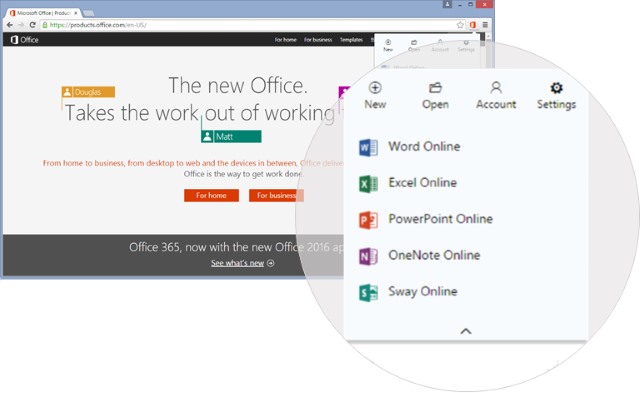
Skype comes to Office Online and Office comes to Chrome
Microsoft is promoting Skype more than ever before. Not content with desktop and mobile apps, now the company is bringing the voice and video messaging tool to its office suite. Starting with Office Online integration Skype messaging is now available in Word, Excel, PowerPoint, and OneNote Online, as well as Outlook.com.
This is a continuation of Microsoft's increased focus on the cloud, and a recognition of the importance of communication for collaborative projects. There are times when simply being able to work on the same document with colleagues is not going to be enough, and this is where Skype integration comes into play.
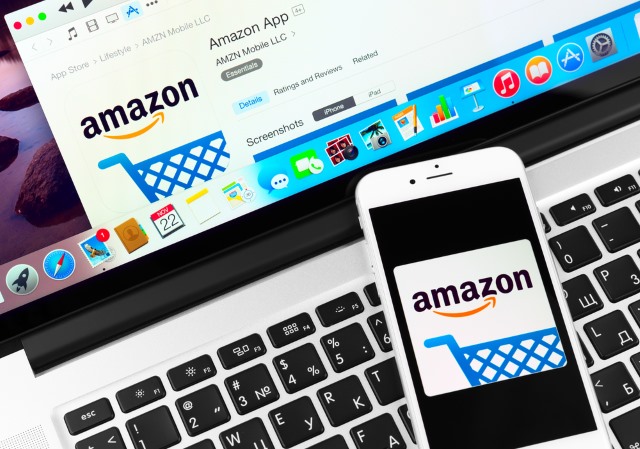
Amazon implements Apple TV veto
True to its word, Amazon has made good on an earlier promise (or threat, depending on your point of view) not to sell Apple TV. In what will be widely regarded as an aggressive marketing move, the online retailer has cut out Apple TV like a cancer. The block on sales comes just as Apple launches its latest streaming device, and the sanctions also affect Google's Chromecast.
Previous links to such product now 404, but there are still a few accessories scattered through the store. But the ban does feel like a case of Amazon cutting off its nose to spite its face. While it does means that Amazon is able to take steps to fight the competition, it does so at the cost of hurting its customers.